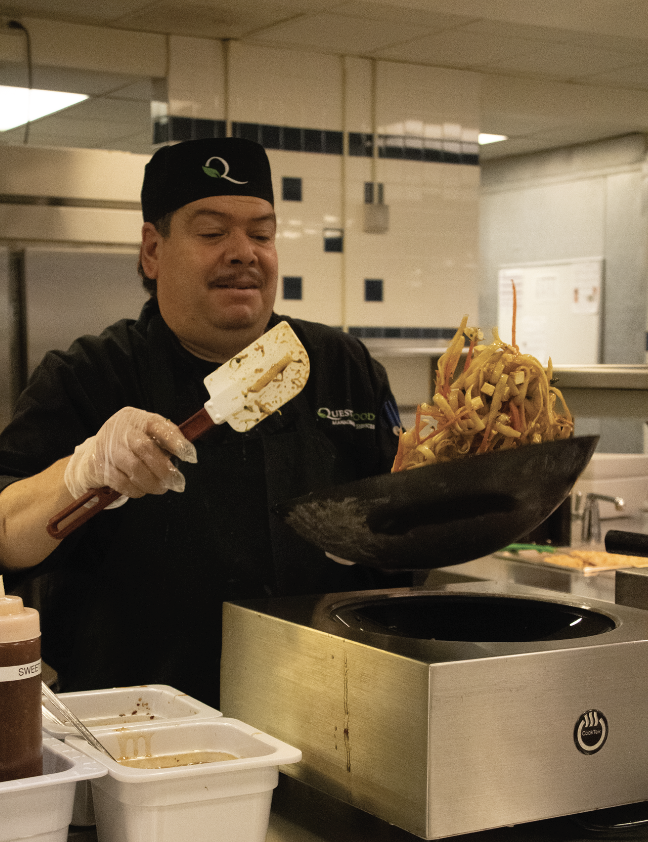At Oberweis Dairy, the air is filled with the scent of freshly made waffle cones, a comforting aroma that wraps around you like a warm embrace. Yet, as I’ve learned during countless shifts, indulging in Fudge Brownie sundaes loses its charm over time.
My older sister worked at Oberweis for about two years before I was hired. She told me a handful of fun stories that drew me in, but she’d always be frustrated while talking about how much she earned relative to the work she’d do.
In Illinois, it is legal for employers to use a portion of your tips as “tip credit” which goes towards meeting your minimum wage requirement instead of being over and above your minimum wage. When my sister would tell me Oberweis was one of many Glenview businesses to do this, I’d think, “I’d never work there.”
Yet, here I am, two years into the same job experiencing the same frustration.
The winter months are the worst. Say I work ten hours and earn $30 in tips. $20 of those tips go to cover part of my minimum wage, leaving me with just $10 as genuine tips. In an ideal world, all $30 of those tips would be given to me in addition to the $13 an hour.
Most shockingly, $202.93 of my tips were used as tip credit in 2023. While calculating this, my mind started exploring the possibilities of what that $202.93 could have bought me if it hadn’t gone to my minimum wage. Twenty meals? Miles and miles of gas?
I assume those leaving these generous tips are under the assumption that their money will be given as a bonus for us, but instead, they are funding the minimum wage that our company won’t pay for themselves.
In the past, we put out a sign alerting the customers to “please tip in cash, credit card tips go to company” so they understood where their money was going, but we were reprimanded by the District Manager from corporate and told to not tell customers about it. But why hide tip credit from customers? There has been legislation passed to outlaw tip credit in seven states, but not Illinois.
In 1966, Congress added the tip credit provision within the Fair Labor Standards Act, and in many states it has persisted with hopes to help small businesses and reject infringement on private business.
However, across the food industry tip credit has pushed tipped workers in Illinois, who are 69 percent female, 39 percent of which are people of color, to tolerate inappropriate customer behavior in order to optimize their wage, One Fair Wage reported.
In Chicago, the city council voted to start phasing out tip credit in July 2024. By July 2028, employees will receive 100 percent of their tips, as tips, in addition to their minimum wage. This is fantastic news for Chicago residents, but this legislation hasn’t extended to the rest of Illinois, at least not yet.
The same group that lobbied for this reform in Chicago, One Fair Wage, has advanced to Springfield in hopes of eliminating tip credit state-wide. However, prospects are dim for statewide legislation as Springfield’s state legislation is not as progressive as Chicagos, One Fair Wage explained.
But, as awareness grows the potential for change inches closer and closer. If more people decide to contact labor unions and local legislators, this fight will take off. But, remember, the minimum-wage workers can’t be the only ones in the ring.
Next time you’re sipping a delicious chocolate malt at Oberweis, consider the person who prepared it, and what role you can play in protecting their rightfully earned tips.







